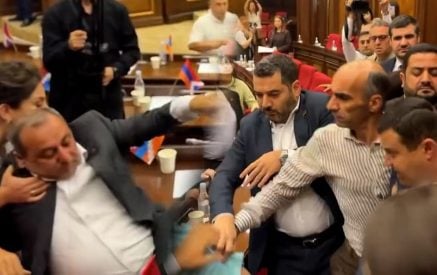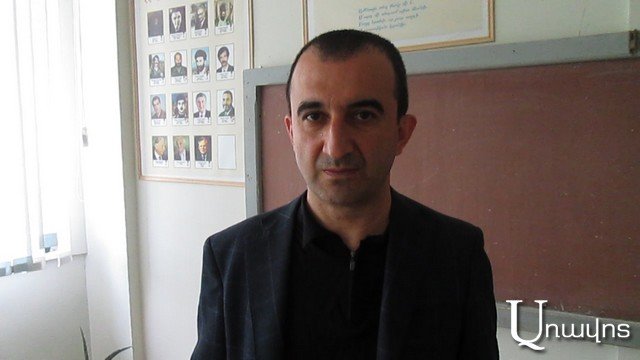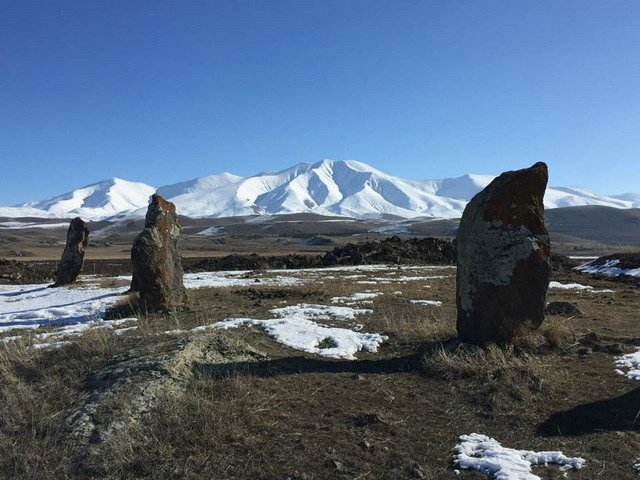But, on the other hand, nor Azerbaijanis
Four years ago, in a café of the city of Blanes, Catalonia (60 kilometers northeast from Barcelona), we ordered a beer. They brought «Estrella» beer, and when we asked whether it is a Spanish beer and not Czech or German, the waiter’s face frowned, “Of course not, he said, it is Catalonian.” There was a nuance here, which, naturally we were did not know. There is also «Estrella Gallicia» Spanish beer. And the one offered us in Blanes is much older, it began to be produced in Barcelona in 1876. Catalans do not consider themselves Spanish, at every step, one may say, on every fence, it is written «independencia». They already have a very high level of autonomy, including the language (Catalonian is one of their official languages, and it comes the first above all, then comes the Spanish language), but they want independence.
Most recently, Catalonia Prime Minister Artur Mas signed a decree on conducting a “poll on sovereignty” on November 9 in his governed sovereignty. Pay attention, not independence, but sovereignty, and not a referendum, but a poll. If this poll is conducted on November 9, the questions are set as follows: 1/ Do you want Catalonia be a state? 2/ If yes, do you want Catalonia be an independent state? Artur Mas is a restrained and balanced figure (for which he is criticized by the Nationalist opposition of Catalonia) and with his decree, he does not want to enter into sharp conflict with the Spanish Constitution. And here, like in the Basic Law of Ukraine, Azerbaijan and other countries, it is written that the independence referendum for a part in Spain is held throughout the territory of Spain. This clause of the Constitutions, in my opinion, is nonsense, because it never, under no circumstances allows the nations to self-determination.
Although this step by the Government of Catalonia was quite cautious, the aroused resentment in Madrid, and all of agencies of the central government, starting from the prime minister and the parliament, declared that the referendum is illegal, and they would do their best to get it canceled. A question arises as to why it was allowed in Scotland, but not in Catalonia. Apart from purely legal issue, there is also a political one. People in London were almost certain that the Scots would say “no”, while in Madrid, people are absolutely sure that Catalans would say “yes.” It, of course, has many reasons. One of the first ones is that the Scots and the English were slaughtered each other for a few centuries ago, the fight of Catalans and Basques for independence has a lot more fresh and dramatic history, including with its bloody manifestations.
Read also
Spaniards, Catalans and Basques are much more impulsive than the English are. Of course, there are also economic reasons. Many of Scottish people evaluate the economic benefits of a single state, majority of Catalans is confident that they would maintain the country with their tourism (20 % of GDP in Spain). Whether it is right or wrong, the experts will say. There is also another difference, which confirms the well-known truth that the language is one of the most important factors in seeking state sovereignty. There are two Scots language – gels (it is the language of a Celtic group) spoken by 94 million people, mostly in mountainous areas of Scotland, and the so-called, scots, which, in fact, is a dialect of English language. About 1.5 million people in Scotland speaks this language, it is also the language of Robert Burns. The population of Scotland, let me remind you, is almost 5.3 million people. About 5.7 million people speak Catalan (is written by “a”) in the original Catalonia, and generally 9.4 million people in the world. Although the language of romance, but significantly different from Spanish. Catalonia’s population is 7.5 million people.
Under these circumstances, it is natural that in case of the referendum, the majority of Catalonia population would be for the independence. Regardless of whether there would be a “poll” on November 9 or not, and in case of holding, what the result would be, the peaceful civil protests in Catalonia will continue, and Madrid will use all the levers of peaceful (also, administrative) pressure. Spain will not invade Catalonia, no guerrilla movement will begin in Catalonia. Fed up people do not fight against each other.
ARAM ABRAHAMYAN


























































